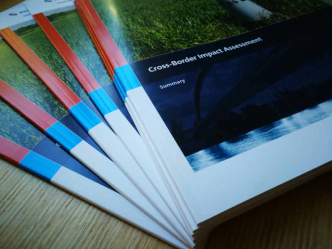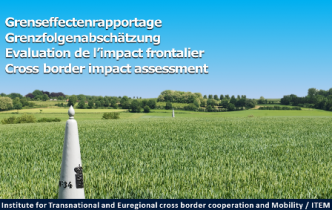Research commissioned by Scientific Bureau OPNL and conducted by expertise center ITEM.
A lasting effect of the Corona crisis is working from home. Both employers and employees in large numbers aspire to structurally embed flexible working. Flexible working involves working from home, but can also be elsewhere than the place of the employer. The ITEM Cross-border Impact Assessment 2021 identifies the tax and social security impact and consequences of home working by cross-border workers, including some sample calculations for employer and employee.
This analysis focuses on the following premise: simplifying flexible working for cross-border workers (and their employers). Currently, the consequences of the border and tax rules lie with the individual. The purpose of this analysis is to explore what the tax regime should look like so that the consequences of flexible working do not fall on the frontier worker. For this, several scenarios can be explored, which can be distinguished both in desirability and realism in different steps of integration. Inspiratie en argumentatie voor verschillende scenario’s kan worden gevonden in de oplossingsrichtingen die in andere grensregio’s zijn gevonden. From this, implications for the border region of the Netherlands, Belgium and Germany, or the Benelux, can be outlined. Based on these scenarios, analyses can be made of the advantages and disadvantages for each scenario as well as in comparison with each other. With that, the analysis results in several steps and scenarios for the short, medium and long term. The scenario analyses are qualitative in nature, shaped by desk-based research and strengthened by examples elsewhere and in the past. The objective is to develop practical political proposals.




